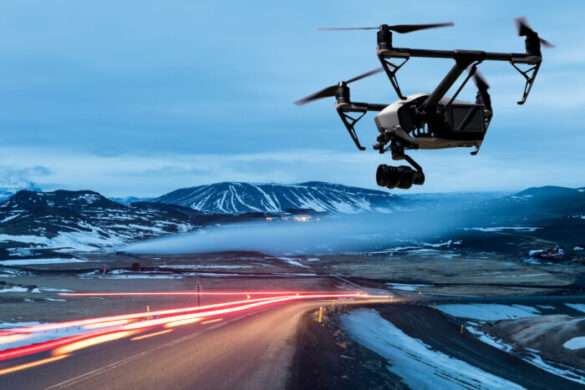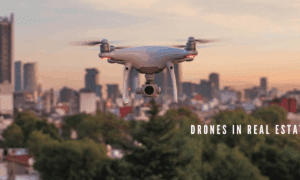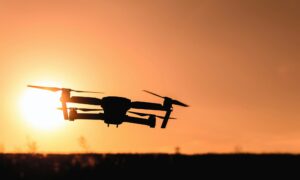You’ll find that dashcams, smart doorbells, and drones offer transformative ways to gather evidence, reshaping liability in legal contexts. Dashcams provide objective accident footage; smart doorbells enhance home security by recording front-door events; drones capture unique aerial perspectives essential for reconstructing incidents. These technologies present privacy challenges, requiring a balance between effective evidence collection and respecting personal rights. For those navigating the legal impact of such evidence, Noll Law Office has experience helping clients use unconventional technology to strengthen their cases. Discover more about how these innovations influence legal responsibilities today.
The Rise of Dashcams: Capturing Every Moment on the Road
Although dashcams initially seemed like a niche gadget, their prevalence on roads today underscores their importance in modern driving.
You’ll notice how they’ve transformed road safety by providing unbiased accident documentation. These compact devices record every moment on the road, offering a vital layer of accountability in traffic incidents. When an accident occurs, dashcam footage can serve as irrefutable evidence, often clarifying the sequence of events and determining fault.
This real-time documentation aids insurance claims and legal proceedings, reducing disputes and promoting fair outcomes. Additionally, knowing you’re being recorded can encourage more responsible driving.
Ultimately, dashcams represent a proactive approach to road safety, shifting the dynamics of accident documentation from subjective testimony to objective evidence.
Smart Doorbells: The New Neighborhood Watch
As technology continues to integrate into daily life, smart doorbells are emerging as a critical component of modern home security, effectively transforming the traditional neighborhood watch.
You can now monitor your doorstep in real-time, enhancing neighborhood safety with ease. These devices capture high-quality video evidence, offering clear insights into events occurring at your front door.
The ability to record interactions provides a direct deterrent to potential criminal activity, as would-be intruders are aware of the constant surveillance. Smart doorbells empower you to proactively address security concerns while contributing to the broader community’s safety.
Drones in Legal Disputes: A Bird’s Eye View
While smart doorbells have become a staple in home security, drones are emerging as compelling tools in legal disputes, offering a unique perspective from above.
You can use aerial footage to provide essential evidence that traditional methods might overlook. Drone surveillance captures scenes from angles otherwise inaccessible, effectively reconstructing events in cases like property disputes or accidents.
This technology can clarify complex scenarios, revealing details obscured at ground level. However, drones require careful operation to guarantee the footage is admissible.
You must verify they comply with regulations and that the evidence is relevant and authentic to withstand legal scrutiny. By leveraging drones, you can potentially shift the dynamics of liability, presenting an unbiased bird’s eye view that might just tip the scales.
Privacy Concerns and Legal Implications
Incorporating drones into legal disputes raises significant privacy concerns and legal implications that must be meticulously addressed.
When using drone footage, you need to take into account privacy regulations that protect individuals from unwarranted surveillance. Consent issues arise, as capturing imagery without explicit permission can violate personal rights.
You must navigate data security challenges, ensuring that collected information is stored and transmitted securely to prevent unauthorized access. Surveillance ethics play an essential role, urging you to balance the need for evidence against individuals’ rights to privacy.
The Future of Evidence: Challenges and Opportunities
Balancing privacy concerns with technological advancements sets the stage for exploring the future of evidence. As technology evolves, digital forensics becomes vital in ensuring evidence authenticity.
You face the challenge of verifying digital data’s integrity, as manipulation techniques advance. It’s important to adopt robust methods to authenticate evidence, ensuring fair legal outcomes.
Opportunities arise with innovations in data collection and analysis, offering richer, more accurate information. However, you must navigate privacy implications and establish clear guidelines to protect individual rights.
The future of evidence lies in striking a balance between leveraging cutting-edge technology and maintaining ethical standards. By embracing these challenges and opportunities, you can harness digital forensics to enhance legal processes while safeguarding privacy and ensuring justice.
Frequently Asked Questions
How Do Dashcams Impact Insurance Claims and Premiums?
Dashcams can reduce insurance premiums by providing clear accident evidence, potentially negating disputes. They enhance your claim’s accuracy, showing who’s at fault. This reliability often leads insurers to offer discounts, highlighting dashcam benefits in minimizing fraudulent claims.
Can Smart Doorbells Be Used to Monitor Public Spaces Legally?
Smart doorbells can monitor public spaces, but you must consider privacy concerns. Laws vary by location, so guarantee you’re compliant with public surveillance regulations to avoid legal issues while balancing security benefits with respecting others’ privacy.
What Are the Regulations for Using Drones in Residential Areas?
You’re required to follow FAA drone regulations, ensuring residential privacy. Fly below 400 feet, avoid flying over people, and respect property lines. Always obtain necessary permissions and stay updated on local laws to prevent violations.
Are There Any Ethical Concerns With Using Unconventional Evidence in Court?
Yes, you should consider ethical concerns like privacy rights and evidence integrity. Guarantee that collecting unconventional evidence doesn’t violate privacy and that the evidence remains credible and unaltered to uphold justice in court proceedings.
How Secure Are the Data Transmissions From Dashcams and Doorbells?
You should guarantee that data encryption is robust for dashcams and doorbells. Transmission security varies, so it’s essential to regularly update devices and use secure networks to protect against breaches, guaranteeing data integrity and confidentiality.
Conclusion
You’ve seen how dashcams, smart doorbells, and drones are transforming the landscape of legal evidence. These tools offer unique perspectives and can swiftly shift liability in disputes. However, they also raise significant privacy and legal concerns that demand careful consideration. As technology evolves, you’ll need to navigate these challenges and seize the opportunities they present. Embrace these unconventional evidence sources, but remain vigilant about their implications for privacy and justice in our increasingly surveilled world.



































